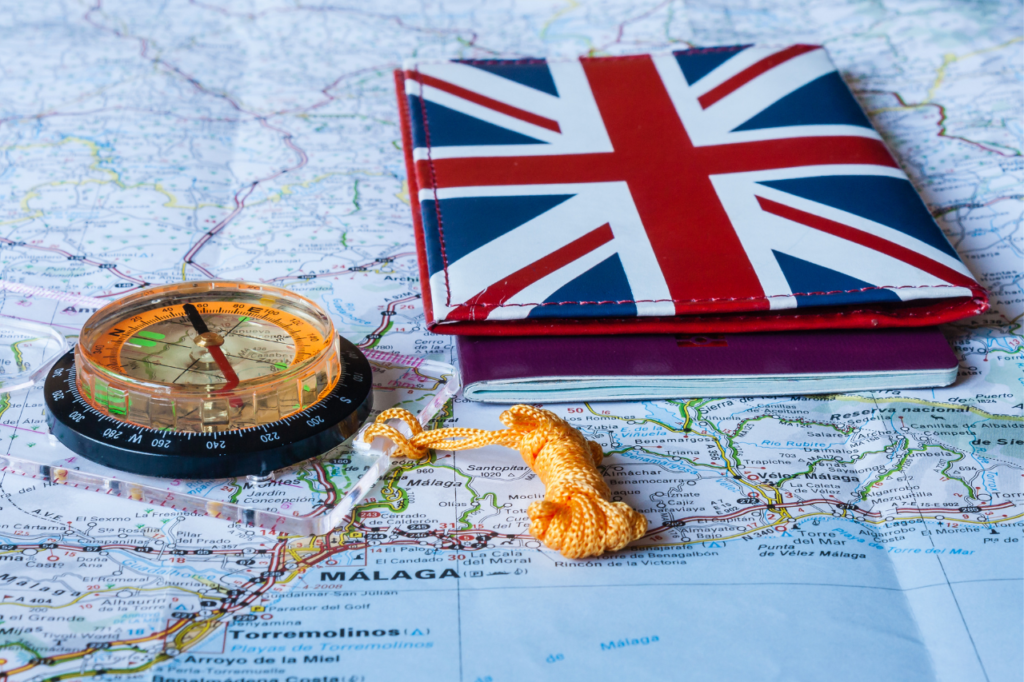British citizenship goes beyond the liberty of living and working without immigration restrictions and is a significant milestone for obtaining a UK passport, which is considered a symbol of prestige and a gateway to the world. This step has the potential to serve fundamental changes in your life. This guide contains important information you need to know about becoming a british citizen from the application process to the need criteria and important requirements.
Checking Your Current Status
Before starting the process for the attainment of British citizenship, it is a must for you to find out if you have some inherited citizenship from your parents or any other means. You may be eligible if:
You Have a British Parent
People who share one of the British parents may already be British citizens, thus, only reinforcing the already present immigration laws in the country. Such a case is when you apply for a card online. You don’t fill in any applications.
You Were Born in the UK or a British Overseas Territory
If you were born there in the UK or its former territory that you currently reside, you could be a citizen of Great Britain right now. This applies to you whether your parents are Spaniards or not
You Were Born in a British Colony Before 1983
The acquirement of British citizenship can be transferred through your birth in any British colony before 1983.
To get British citizenship details, you can check on the website of GOV.UK. If you are a Briton, you will not be aroused because all you have to do to claim UK citizenship is to make an application for a UK passport.
Applying for British Citizenship
If you do not fall into the automatic citizenship categories mentioned above, you can still apply for British citizenship through the process of ‘naturalization.’ Here’s how:
Becoming a British Citizen: Eligibility Criteria
To apply for naturalization, you must meet the following criteria:
- Age Requirement: To join our network, you must be over the age of 18.
- Residency: You either moved to the UK or were born in the UK.
- Permission to Live in the UK: You need indefinite leave to remain or ‘settled status,’ which may be obtained through the EU Settlement Scheme. This requirement applies even if your spouse or civil partner is a British citizen.
- Other Requirements: Specific eligibility criteria may vary depending on your circumstances, especially if you are an EU, EEA, or Swiss citizen or a family member. It’s imperative to research the status you need and other applicable requirements before initiating your application.
Spouse or Civil Partner’s Influence
Having a British citizen as a spouse or civil partner can ease the path to British citizenship. In such cases, you typically need:
- Indefinite Leave to Remain: Also known as ‘indefinite leave to enter.’
- Settled Status: This should be obtained through the EU Settlement Scheme.
Once you meet these prerequisites, you can proceed with your application. Keep in mind the importance of meeting all other requirements, which include:
- Residency: You must have lived lawfully in the UK for the past 3 years.
- Life in the UK Test: Passing this test is mandatory.
- English Language Proficiency: Unless exempt, you must possess a qualification demonstrating your ability to speak and understand English.
- Good Character: Ensuring that you have no recent or serious criminal convictions, outstanding debts, unpaid taxes, or immigration issues is essential.
To prove your residency in the UK for the past three years, you must demonstrate:
- Living in the UK: Reside in the UK for the three years preceding your application.
- Absences from the UK: Spend no more than 270 days outside the UK in those three years.
- Recent Absences: Be in the UK on the exact day three years ago from your application date. If this isn’t the case, it’s advisable to wait until it’s been three years since you returned to the UK.
In cases where you’ve been outside the UK for more than 270 days, exceptions may be made by the Home Office. These exceptions could include absences for work-related travel or other valid reasons.
Before applying, always check the naturalization guide on GOV.UK for detailed information regarding exceptions to absences from the UK. Bear in mind that application fees are non-refundable if the Home Office deems you ineligible due to extended absences.
Eligibility for Those with EU, EEA, or Swiss Connections
If you or your family are from the EU, Norway, Switzerland, Iceland, or Liechtenstein, and your spouse or civil partner is a British citizen, you can typically apply for British citizenship 12 months after:
- Acquiring settled status through the EU Settlement Scheme
- Obtaining indefinite leave to remain
Even if you missed the deadline for settled status, you may still be eligible if you can demonstrate a valid reason for the delay.
- Similar to other applicants, you need to meet specific requirements:
- Residency: You should have lived in the UK over the past 5 years.
- Life in the UK Test: Passing this test is mandatory.
- English Language Proficiency: Unless exempt, you must possess a qualification demonstrating your ability to speak and understand English.
- Good Character: Ensuring that you have no recent or serious criminal convictions, outstanding debts, unpaid taxes, or immigration issues is essential.
Proving your five years of UK residency requires:
- Residency Period: Living in the UK for five years before your application.
- Absences from the UK: Spending no more than 450 days outside the UK in those five years.
- Recent Absences: Being in the UK on the same day five years ago as your application date. If this isn’t the case, it’s usually best to wait until it’s been five years since the date you returned to the UK before applying.
For those with extended absences from the UK, exceptions may be made by the Home Office, especially for reasons like frequent work-related travel or compassionate circumstances.
Always consult the naturalization guide on GOV.UK to check if the Home Office can make exceptions for your absences from the UK.
Guide to Becoming a British Citizen: Applying from Other Countries
Suppose you are from any country other than those mentioned above. In that case, you can usually apply for citizenship 12 months after obtaining indefinite leave to remain (or ‘indefinite leave to enter’), unless you are married to a British citizen.
To check if you are eligible for indefinite leave to remain, visit GOV.UK.
- Similar to other applicants, you must meet specific requirements:
- Residency: You should have lived in the UK over the past 5 years (or 3 years if you have a British husband, wife, or civil partner).
- Life in the UK Test: Passing this test is mandatory.
- English Language Proficiency: Unless exempt, you must possess a qualification demonstrating your ability to speak and understand English.
- Good Character: Ensuring that you have no recent or serious criminal convictions, outstanding debts, unpaid taxes, or immigration issues is essential.
- To prove your five years of UK residency, you must demonstrate:
- Residency Period: Living in the UK for five years before your application.
- Absences from the UK: Spending no more than 450 days outside the UK in those five years.
- Recent Absences: Being in the UK on the same day five years ago as your application date. If this isn’t the case, it’s usually best to wait until it’s been five years since the date you returned to the UK before applying.
As with previous cases, exceptions for extended absences may be made by the Home Office. Always consult the naturalization guide on GOV.UK for more information.
Getting British Citizenship for Children
If you are a parent considering British citizenship for your children, the process can be straightforward. Some children may even apply before their parents if they were born in the UK or if one of their parents became British first. The details of this process can be found on GOV.UK.
Becoming a British Citizen Other Eligibility Routes
Apart from the aforementioned pathways, there are several other routes to becoming a British citizen as stated in this guide, including:
- Birth in the UK: If you were born in the UK, you may be eligible.
- British Parent: Having a British parent can confer citizenship.
- Statelessness: If you are stateless, you might be eligible.
- Other Types of British Nationality: Some individuals may hold a different type of British nationality, such as ‘British overseas citizen.’
- Territorial Connection: Having a connection with a past or present British territory, such as Gibraltar, can make you eligible.
In conclusion, obtaining British citizenship is a significant milestone that opens doors to countless opportunities. Whether you are seeking a new life in the UK or simply exploring the possibilities, this guide to becoming a british citizen will make you understand the eligibility criteria and requirements specific to your situation. Remember that each case is unique, and seeking guidance from legal experts or advisers can be invaluable in navigating the complex journey toward British citizenship.
With this comprehensive guide, you now have a solid foundation to embark on your path to becoming a British citizen. Best of luck on your journey!





